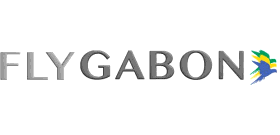 Air Sénégal and Fly Gabon Set to Transform Regional Aviation with Strategic Cooperation
Air Sénégal and Fly Gabon Set to Transform Regional Aviation with Strategic Cooperation
In a move poised to reshape the landscape of West and Central African air connectivity, Air Sénégal and Fly Gabon are preparing to sign a comprehensive Memorandum of Understanding (MoU). The upcoming agreement is designed to foster deep collaboration across multiple operational domains, signaling a new era of partnership that could drive greater efficiency and competitiveness for both airlines—and, by extension, for the wider African aviation sector.
The framework of this anticipated MoU goes far beyond mere cooperation in flight schedules. Key elements include interline agreements, code-sharing possibilities, joint approaches to aircraft maintenance, and the alignment of schedules. According to Tidiane Ndiaye, CEO of Air Sénégal, certain aspects of the partnership are already being put into practice, reflecting the urgency and strategic foresight with which both carriers are approaching this collaboration.
For sub-Saharan travel professionals, these developments may translate into tangible benefits for passengers and businesses alike. Interline agreements, in particular, pave the way for seamless travel experiences: passengers can book itineraries that span both airlines, easing connections across a broader network. This is especially significant for travelers navigating the often-complex patchwork of regional air routes in Africa, where direct flights are limited and multi-leg journeys are common.
The code-sharing component of the agreement holds similar promise. By marketing flights under each other’s designator codes, both Air Sénégal and Fly Gabon can offer their customers access to an expanded portfolio of destinations. This strategy not only enhances passenger convenience but also boosts each airline’s visibility and revenue potential. For African tourism and business travel sectors, this could mean new options for connecting cities that have previously been underserved or overlooked by major carriers.
Operational cooperation in the area of aircraft maintenance is another critical pillar of the partnership. By pooling resources, sharing technical expertise, and potentially centralizing certain maintenance operations, both carriers can reduce costs, improve fleet reliability, and minimize operational disruptions. This is a forward-thinking approach in a region where access to specialized maintenance facilities can be a persistent challenge, sometimes causing flight delays and affecting service quality.
Another critical feature of the MoU is the alignment of flight schedules. By coordinating their timetables, Air Sénégal and Fly Gabon can optimize connecting times for passengers and maximize aircraft utilization. This alignment is expected to foster smoother transfers for international and regional travelers, further enhancing the attractiveness of both airlines in a competitive market.
What makes this partnership particularly noteworthy is its proactive implementation. As CEO Tidiane Ndiaye notes, some elements of the agreement are already operational. This suggests that the two airlines are moving quickly to capture early synergies and deliver immediate value to customers and trade partners. Such swift action reflects a growing trend among African carriers to pursue alliances that can accelerate recovery and growth in the post-pandemic era.
The implications extend well beyond the immediate parties involved. As the African air transport sector continues to modernize and integrate, successful models of cooperation like this one can inspire similar initiatives among other regional players. These alliances may help overcome the fragmentation that has historically hindered efficient and reliable air service across Africa—and open up fresh commercial opportunities for hospitality providers, tour operators, and tourism boards across the continent.
For African travel professionals, the emerging partnership between Air Sénégal and Fly Gabon is a development to watch closely. It underscores the importance of innovative business strategies, regional solidarity, and operational excellence in building a robust and interconnected African aviation industry. As these carriers deepen their cooperation, new opportunities are likely to emerge for expanding route networks, improving service standards, and strengthening Africa’s position in the global travel ecosystem.
The journey toward a more integrated and customer-centric aviation sector in Africa is gathering momentum. Initiatives like the Air Sénégal–Fly Gabon MoU not only demonstrate what’s possible when regional airlines work together—they also set new benchmarks for ambition and achievement in one of the world’s most dynamic travel markets.
